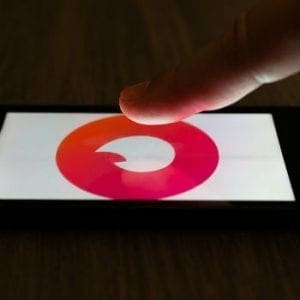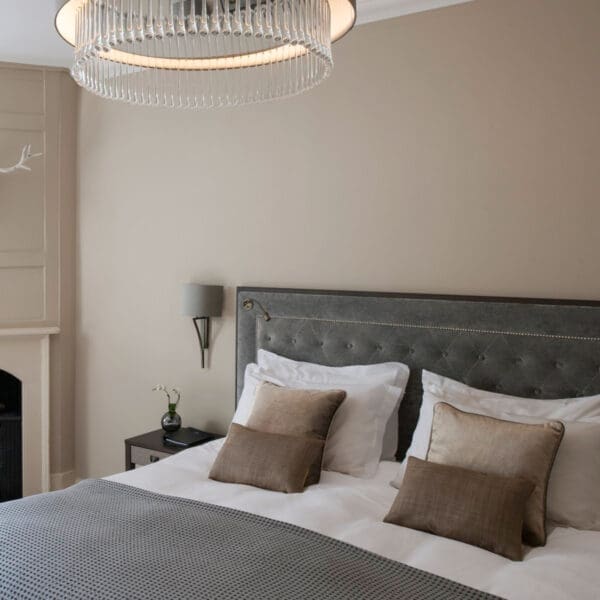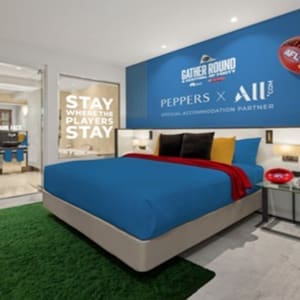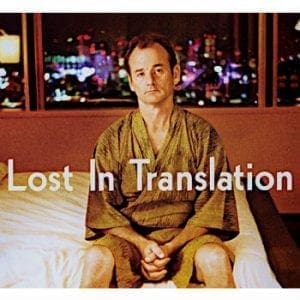 First things first. For those who don’t have a clue what Tinder is:
First things first. For those who don’t have a clue what Tinder is:
Tinder has made about 20 billion matches to date and has made dating relatively simple, or at least the first step. It doesn’t ask for 100 different questions, 50 forms, etc. Its simplicity – Swipe. Match. Chat. Date. – is one of the reasons why it became so popular. Swipe right to Like someone, swipe left to pass.
I know what you are thinking….whaaaaaattttt?!?!?!?! No way, man! You have clearly lost the plot on this one. How on earth are you going to connect this to hospitality distribution? Well, let’s not swipe left … just yet.
If you are like me, a pre-millennial kind of MTV Generation (and before) person, you might cringe at the sound of online dating. But truth to be told, it has become culturally accepted and widely adopted. It raises the question though as to how it got there and what its secret to success is. More importantly – can its success be applied to other industries?
In short – what we do in hospitality distribution is not that dissimilar to dating. A report by Google highlighted that “Amy had 419 digital moments researching her trip over 2 months”. In some cases, you / your hotel was part of the dating round, in others you weren’t.
Still wondering how am I connecting Tinder to hospitality?
Fairly simple for me. I boil it down to the fundamentals. I believe that what worked for Tinder also works for hospitality distribution. Call them the same fundamentals – Location, Availability, Looks and Convenience. Still don’t believe me, ok – let’s look at it through hospitality eyes and test my theory:
Scenario: A guest, let’s call her Amy, is thinking about taking a vacation and is starting her journey to do so.
Location, location, location
There are two first parts actually. The first-first part of the journey – deciding where to go. It is the first step that determines if you are “in or out”. Imagine this: If you’re not in the right location i.e. you are in Singapore, yet Amy wants to go to Paris – you’re out of the game. And you didn’t even do anything wrong. The good old: “It’s me, not you” comes to mind.
What it simply means is that a very high-level filter was applied by Amy and that at this time the first primary driver (location) did not work in your favour and there’s nothing you can do about it. Same as in Tinder – if you sit in Paris and Amy is in Singapore, then chances are your profile is swiped to the left!
The second-first part is: Amy needs to make the decision as to what channel she wants to use? Tinder, Match, OKCupid, Hinge, Coffee Meets Bagel (combining two thought after items). The challenge is, how do you know which channel your soulmate is using? Should you create an account on all of them?
It is same with hotel distribution. If you are not displayed on the right channel that your guest is searching, you will never meet, just like two ships passing in the dead of night. Hoteliers need to be intimately knowledgeable with how their ideal guest shops and make sure that they are at the same location at the same time.
Availability
Now let’s not kid ourselves! You will not be booked if you have a bad placement on the site (e.g. page ranking 200) – i.e. Amy never sees you, if you are overpriced or have overall mostly bad reviews. It means you are out. In addition, if you are not giving inventory to a channel – a channel that Amy is looking at – you are equally out.
Just to be clear: Being available doesn’t mean throwing promotions out there or being the cheapest or selling your soul.
Tinder is not so different: If you walk into a place unavailable, guess what, you will not show up. The person across the room will never know that their soulmate was in easy reach.
Oh, and remember how we looked at which channels Amy might use? If you are flashing the goodies (Flash Sales discounts people!) on one, make sure Amy knows about it.
Looks
Perception equals reality. Remember the last time you went out for a date? How you got yourself ready, making sure you looked your best, or at least good? At the worst case, presentable? You are actively putting in an effort. In the Tinder app, you would make sure that your picture is up to date and you are looking your best.
When we look at hotels, we somewhat follow the same approach: we put the best pictures of our rooms and property on the web. Why not put pictures of your rooms with dirty linen? Or your restaurants full of dirty dished? Because first impressions count. Because we want the perception we are creating for the guest to lead to a booking. So that perception becomes reality. Just be careful you don’t oversell yourself. No one likes to show up on a blind date to realize the “35-year-old” is really 65!
The last one…Convenience
Booking direct has been a buzzword of 2018 and it is still ringing in 2019. Part of Tinder’s success is the convenience it offers. On your mobile, in the moment, easy to swipe, chat, date, etc.
Interesting enough – Convenience is something the OTA’s understood early on. One click bookings, keeping your details for the next time you come to book, chatbots, mobile optimized, first name – last name – email is all you need, etc.
Savvy hoteliers have gone down a similar route for their hotels and upgraded their booking experience on their own assets – website / booking engine. There are many though that have not, and either you must send “an email” to request for a booking, or you still have to fill out 50 different fields around your pet’s name etc. before you can book.
Drumroll: You are available! You are in the right location! You are looking good! You are optimized for user experience and conversion. Depending on which studies you believe, guests are taking anything between 25 to 50 different pages into consideration before making a booking. As we have seen with Amy, she did 418 travel related moments. And each time you are in the mix, you must bring you’re A game. This doesn’t mean that you will win every time. It means, though, that every time you have a better chance to appeal to the person likely to be drawn to you.
Whilst in Tinder you swipe to the left, in hospitality distribution you just click the X …and with that you are out.
Conclusion
Look at yourself through your guest eyes and ask yourself: Would I date myself? Can I find myself? Is this the best I can possibly be?
If the answer is no, then change! If the answer is yes – fantastic (others might say delusional because there is always something you can do) – take yourself to the next level.
Be distinct – better photos, description, placing, availability, things that make you special, things that make you unique. Remember last time you took a bus, walked somewhere, looked around the room and you saw this one person and you found yourself staring? DISTINCT!
One word of caution: We always talk about loyal guests. The funny thing about loyal guest or even repeat guests: You need to win them over first. Good luck dating!
If you want to get in touch, connect with me on Linkedin. Special thank you for insights into this article to Steve Rubin.

















